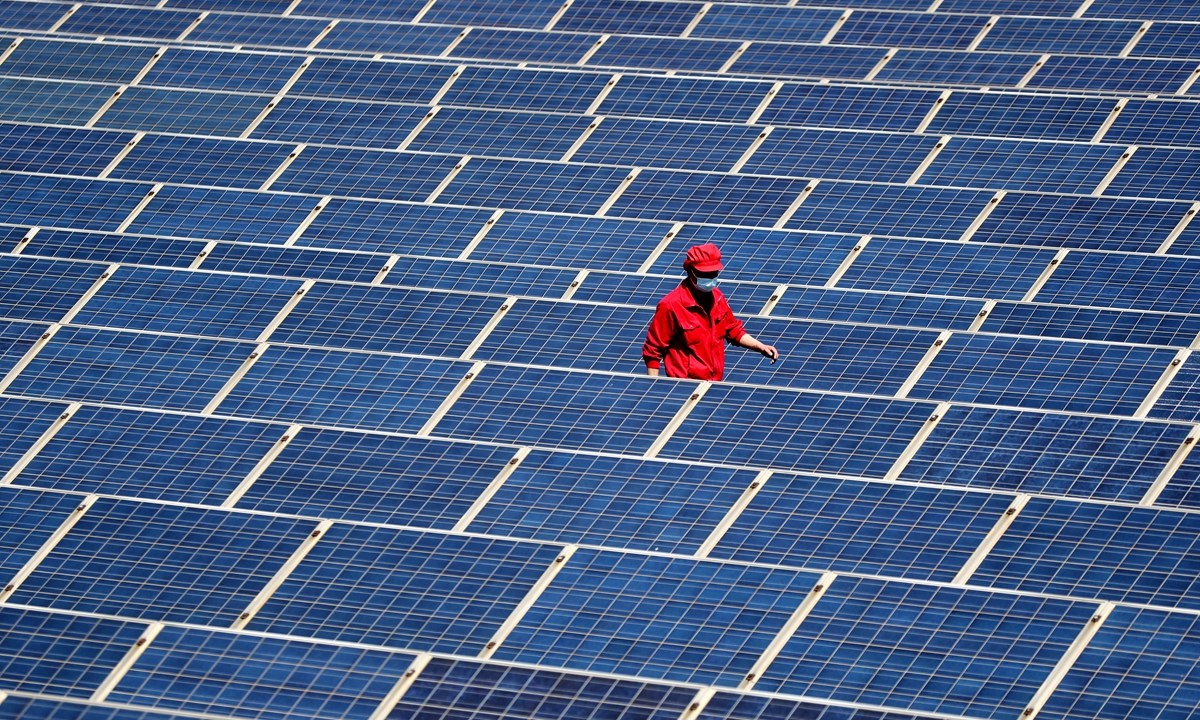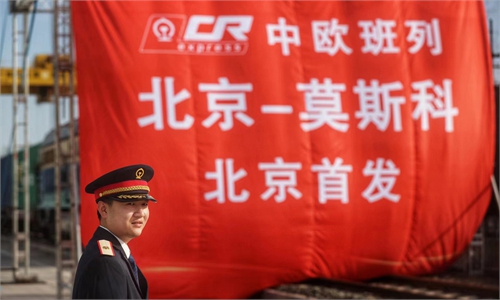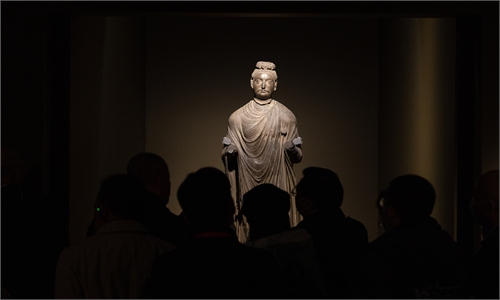EU’s reported import curb on China’s green tech risks pushing up prices, shaking investors’ confidence: insiders
Reported ban on Chinese green tech ‘may mean higher prices, lower confidence’

A technician inspects the rooftop photovoltaic (PV) power generation project of a company in Jimo district, East China's Shandong Province on May 4, 2022. Local authorities have been encouraging the construction of rooftop PV projects in recent years, so firms can use clean electric energy for production and operation. Photo: cnsphoto
A Chinese business group and companies doing business in Europe expressed serious concerns regarding the EU's reported intention to curb imports of Chinese green technologies and products including solar panels - a segment where China leads the world.
The EU is seeking a green transformation amid high inflation and volatile energy markets, which have been disturbed by the Russia-Ukraine conflict and other factors. But the curb may achieve the opposite outcome by driving up prices and shaking investors' confidence in green economic development, industry insiders said.
The Financial Times, citing a draft of the Net Zero Industry Act, reported that the EU is proposing to downgrade public procurement bids that use products from any country with more than 65 percent EU market share.
The proposal would make it harder for buyers to access subsidies, the report said.
While similar rules would apply to any government program subsidizing consumer purchases, "China is a prime example," a person familiar with the plans told the Financial Times.
The reported proposal raised serious concerns from a Chinese business group and companies with business in Europe, which told the Global Times on Thursday that such restrictions may push up the prices and increase the entry barriers of green products in the EU market.
"We are seriously concerned about the draft Net Zero Industry Act mentioned in relevant reports, as well as the imposition of restrictions on China's green products," the China Chamber of Commerce to the EU (CCCEU) said in an exclusive written interview with the Global Times on Thursday. The chamber represents about 1,000 Chinese companies in the EU countries.
If the report is accurate, it again reflects the deepening trend of protectionism in the EU's economic and trade policies, and the trend has spread from the digital economy and security to the green economy, the Chinese business group further noted.
A manager in the international business department of Yingli Group, a domestic photovoltaic (PV) producer, told the Global Times on Thursday that such a policy is obviously trade protectionism and seriously damages fair competition in the market economy.
"China's new-energy products have made great contributions in terms of technology leadership, product quality and cost reduction…if the draft is implemented, it will damage the credibility of the EU in terms of market fairness and reduce the trust of international capital in the EU," the person said.
In recent years, some politicians in Europe and the US have used anti-dumping and countervailing duty investigations to initiate boycotts of or restrictions on China's companies, including the PV industry.
Despite these difficulties, the PV trade has remained resilient.
In 2022, both the value and volume of China's PV module exports reached record highs. Europe was the most important export market, accounting for about 55 percent of the export value of China's PV modules, an increase of 10.9 percentage points year-on-year, according to media reports.
Lin Boqiang, director of the China Center for Energy Economics Research at Xiamen University, told the Global Times on Thursday that when oil prices in the EU soared and global inflation was high, it was China's new-energy products that helped the EU and alleviated its energy shortages to a certain extent.
Lin noted that if the EU blindly follows the US by curbing the value-for-money green products from China, the EU may have to purchase PV devices at higher prices to meet local booming demand amid its energy crisis.
The CCCEU also said that "restrictive practices may push up the prices and raise the entry barriers of green products in the EU market, and the cost will be paid by ordinary people."
Chinese companies have played an important role in helping the EU's green transformation, with both sides being important partners in the formulation of global green standards and in response to climate change, the CCCEU said, calling on the EU to respect market-based law and globalization, and refrain from excessive administrative intervention in green products and technology markets.



